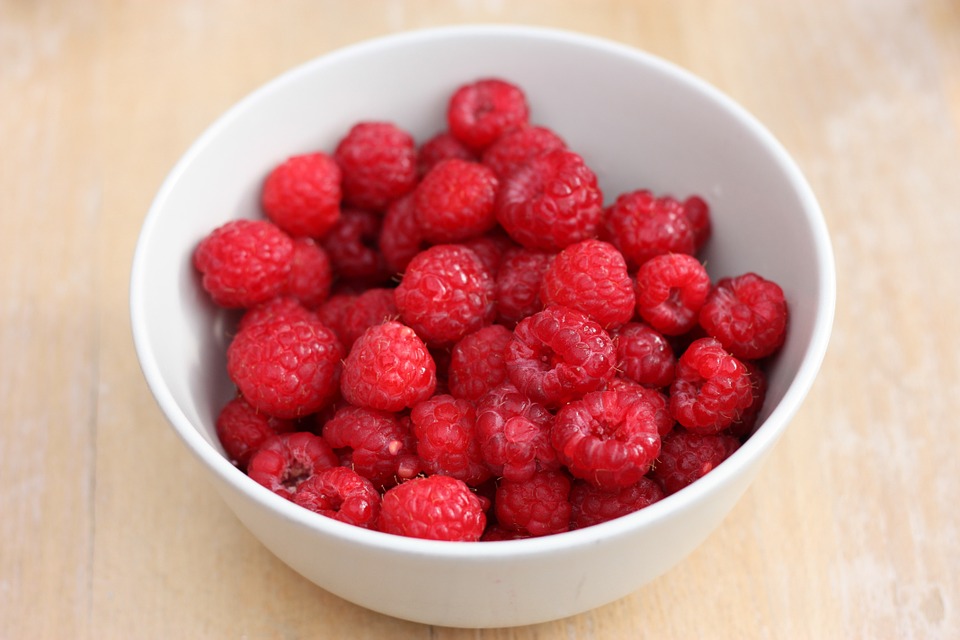This article delves into the intriguing question of whether cats can safely enjoy the sweet delight of raspberries. We'll explore the nutritional profile of raspberries, examine their potential benefits and risks for our feline companions, and address common concerns surrounding raspberry consumption. Additionally, we'll provide a comprehensive guide to ensure the safety of your cat when considering offering them this tempting treat.
Part 1: The Nutritional Landscape of Raspberries

1.1. A Bounty of Vitamins and Minerals
Raspberries are a nutritional powerhouse, boasting an impressive array of vitamins and minerals that contribute to overall health. They are particularly rich in:
- Vitamin C: A potent antioxidant that bolsters the immune system, promotes collagen production for healthy skin, and aids in wound healing. While cats can synthesize some vitamin C, a small additional source may provide a slight benefit.
- Vitamin K: Essential for blood clotting, which helps prevent excessive bleeding, and plays a role in maintaining strong bones.
- Manganese: A vital mineral involved in energy production, bone formation, and the breakdown of carbohydrates.
- Fibre: Promotes healthy digestion by adding bulk to stools, aiding in regular bowel movements, and potentially reducing the risk of constipation.
- Potassium: A key electrolyte that regulates blood pressure, maintains muscle function, and supports nerve transmission.
- Antioxidants: Raspberries are a rich source of antioxidants, particularly anthocyanins, which give them their vibrant red colour. Antioxidants combat free radical damage, potentially reducing the risk of chronic diseases.
Part 2: Exploring the Potential Benefits for Cats

2.1. A Source of Additional Vitamin C
While cats can produce their own vitamin C, a small amount from raspberries may offer a modest boost. However, it's essential to understand that cats have a lower requirement for vitamin C than humans, making it less critical for their overall health.
2.2. Fibre for Digestive Support
A small amount of fibre from raspberries can aid in promoting healthy digestion, especially for cats prone to constipation. However, excessive fibre intake can cause gastrointestinal upset, leading to diarrhoea or vomiting.
Part 3: Assessing the Risks for Feline Companions
3.1. The Sugar Factor
Raspberries are naturally sweet due to their fructose content. While a small amount may be harmless, excessive sugar consumption can lead to weight gain, dental problems, and potential health issues, especially for cats with diabetes.
3.2. Potential for Allergic Reactions
Although uncommon, some cats may experience allergic reactions to raspberries. These reactions can range from mild skin irritation, such as redness or itching, to more severe gastrointestinal upset, including vomiting or diarrhoea.
3.3. Digestive Discomfort from Seeds and Stems
The seeds and stems of raspberries can be difficult for cats to digest and may cause gastrointestinal discomfort, such as bloating, diarrhoea, or vomiting. It's crucial to remove these parts before offering raspberries to your cat.
3.4. Pesticide and Herbicide Concerns
While raspberries themselves are not toxic to cats, it's crucial to avoid offering those that have been treated with pesticides or herbicides. These chemicals can be harmful and potentially cause illness or poisoning. Opting for organic raspberries whenever possible minimizes this risk.
Part 4: Navigating Safe Practices for Raspberry Treats
4.1. Moderation is Key
If you choose to offer raspberries to your cat, moderation is paramount. A small piece or two may suffice, and it's best to observe your cat's reaction carefully before offering more.
4.2. Prioritizing Organic Raspberries
Whenever possible, opt for organic raspberries to minimize the risk of pesticide exposure. Organic farming practices avoid the use of synthetic pesticides and herbicides, making them a safer choice for your feline friend.
4.3. Removing Seeds and Stems
Thoroughly remove the seeds and stems before offering raspberries to your cat. These parts can be difficult to digest and may cause irritation or digestive issues.
4.4. Gradual Introduction
If you're introducing raspberries to your cat for the first time, start with a tiny piece and observe their reaction carefully. If they exhibit any signs of discomfort, such as vomiting, diarrhoea, or lethargy, discontinue feeding raspberries and consult your veterinarian.
Part 5: The Importance of Veterinary Consultation
Before introducing any new foods to your cat's diet, it's always best to consult with your veterinarian. They can assess your cat's individual health needs, including any pre-existing conditions, allergies, or dietary restrictions, and provide personalized guidance on appropriate dietary choices.
Part 6: Addressing Common Questions and Concerns
6.1. Can cats eat raspberry seeds?
While the flesh of raspberries is generally safe for cats, the seeds can be difficult to digest and may cause stomach upset. It's best to remove the seeds before offering raspberries to your feline friend.
6.2. What if my cat eats a whole raspberry?
If your cat accidentally ingests a whole raspberry, they are unlikely to suffer any serious harm. However, it's important to monitor them for signs of digestive upset, such as vomiting or diarrhoea. If you notice any concerning symptoms, consult your veterinarian.
6.3. Can I give my cat raspberry leaves?
Raspberry leaves are generally considered safe for cats in small quantities. However, it's best to avoid feeding them large amounts, as they contain tannins, which can be mildly toxic.
6.4. Are raspberries good for cats with diabetes?
Raspberries are high in natural sugars, which can be problematic for cats with diabetes. It's best to avoid offering raspberries to diabetic cats. Their diet should be strictly controlled and managed under veterinary supervision.
6.5. How often can I give my cat raspberries?
If you choose to offer raspberries to your cat, it's best to do so sparingly. Once or twice a week is a safe frequency, but always observe your cat's reaction and adjust accordingly. If you notice any signs of discomfort, reduce the frequency or discontinue offering raspberries.
6.6. What if my cat shows signs of allergy?
If your cat exhibits any signs of an allergic reaction to raspberries, such as skin irritation, vomiting, or diarrhoea, discontinue feeding them raspberries immediately and consult your veterinarian. They can assess the situation and recommend appropriate treatment.
Part 7: The Importance of a Balanced Diet
Ultimately, a balanced diet formulated by your veterinarian is essential for your cat's overall health and wellbeing. While raspberries can offer some potential benefits, they should be considered a treat and not a staple of your cat's diet. It's crucial to prioritize a complete and balanced commercial cat food specifically designed to meet their nutritional needs.
Part 8: Conclusion
While raspberries offer some potential nutritional benefits for cats, their sugar content, potential for digestive upset, and risk of allergies require careful consideration. Moderation, proper preparation, and awareness of individual sensitivities are crucial. By following these guidelines and consulting with your veterinarian, you can make informed decisions about whether or not to include raspberries as a treat in your cat's diet.
Everyone is watching
-

Are Cat Ribs Flexible? Understanding Their Anatomy
CATS & KITTENSThis article delves into the fascinating world of feline anatomy, exploring the flexibility of cat ribs and ho...
-

Can Cats Eat Bananas? (Everything You Need to Know)
CATS & KITTENSThis article dives into the intriguing question of whether cats can safely enjoy the sweet, yellow fruit, bana...
-

Cat Lifespan: How Long Do Cats Live?
CATS & KITTENSThis comprehensive guide explores the factors influencing the lifespan of our feline companions, providing ins...
-

Can Cats Get COVID-19? What You Need to Know
CATS & KITTENSThis article will delve into the fascinating world of feline COVID-19 susceptibility. We'll explore whether ca...
-

Can Cats Eat Eggs? A Complete Guide to Egg Safety for Your Feline Friend
CATS & KITTENSWhen it comes to treating our furry companions, we all want to ensure we're doing what's best for them. Eggs...
